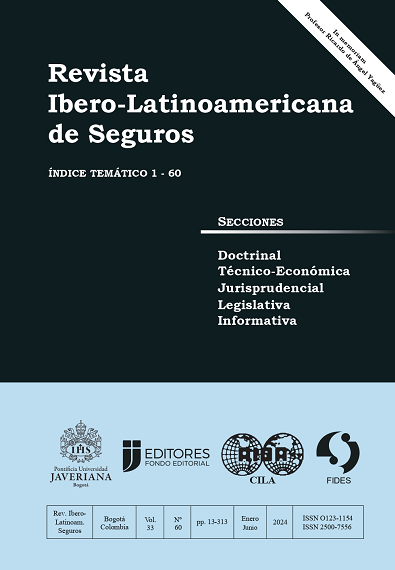Abstract
In the STC10662-2024 judicial decision, the Supreme Court of Justice from Colombia ruled over the computation of default interest in insurance contracts and the assessment of the evidentiary burdens of the parties. The Court decided that depending on the circumstances of each case, default interest will be caused from the month following the date on which the insured proves the occurrence and amount of the loss, or from the enforceability of the judgment ordering the payment of the indemnity. The Court emphasized that judges must examine with equal rigor the fulfillment of evidentiary burdens of both the insured and the insurer, as established in Article 1077 of the Commercial Code. Notably, the Court highlighted that in real insurance policies under the presumed value modality, in cases of total loss or theft, the insured only needs to prove the occurrence of the loss, not its amount. In this case, the Court revoked the appealed judgment and granted the protection requested, considering that the second instance judge incurred in a factual error due to improper evidentiary assessment by failing to adequately examine the insurer's fulfillment of its evidentiary burden in objecting to the claim.
This journal is registered under a Creative Commons Attribution 4.0 International Public License. Thus, this work may be reproduced, distributed, and publicly shared in digital format, as long as the names of the authors and Pontificia Universidad Javeriana are acknowledged. Others are allowed to quote, adapt, transform, auto-archive, republish, and create based on this material, for any purpose (even commercial ones), provided the authorship is duly acknowledged, a link to the original work is provided, and it is specified if changes have been made. Pontificia Universidad Javeriana does not hold the rights of published works and the authors are solely responsible for the contents of their works; they keep the moral, intellectual, privacy, and publicity rights.
Approving the intervention of the work (review, copy-editing, translation, layout) and the following outreach, are granted through an use license and not through an assignment of rights. This means the journal and Pontificia Universidad Javeriana cannot be held responsible for any ethical malpractice by the authors. As a consequence of the protection granted by the use license, the journal is not required to publish recantations or modify information already published, unless the errata stems from the editorial management process. Publishing contents in this journal does not generate royalties for contributors.



